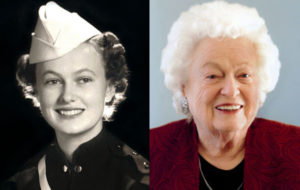While You’re at Home. . .
COVID-19 has interrupted the normal flow of our lives. Our hearts, thoughts, and prayers go out to all who are being affected, and to all who are suffering. And our deep thanks go to all who are helping the situation. Meanwhile, if you’re struggling to keep busy while practicing social distancing, try this!
Create your family tree online
Don’t have an online family tree? FamilySearch can help–for free. FamilySearch.org’s Family Tree offers significant global genealogy resources at a price anyone can afford: free!* Don’t have a tree there yet? Follow the link to get started! Family Search’s collaborative tree allows users who are related to labor together in sorting out their ancestors. Just enter info for yourself and your ancestors to get started.
Ancestry.com is a premium genealogy service that allows you to begin your tree with a free trial (stipulations apply). While they want to get you on the hook for a subscription, they do offer powerful genealogy tools, records, and resources. Click here to sign up and get a two-week free trial (credit card info required). Sites such as myheritage.com and geneanet.org (currently geared more toward pedigrees in continental Europe), and findmypast.com (currently geared more toward the U.K.) also offer free trial options.
FamilySearch “Recommended Tasks”
If you have a family tree on FamilySearch.org, consider having a look at “Recommended Tasks” (FamilySearch web version), “Ancestors With Tasks” (FamilySearch Android app), or “Tasks” (on Apple). (Click here for links to FamilySearch apps.) The tasks utilities with FamilySearch identify individuals in your tree with possible record matches, data issues/errors, possible missing children, and more. However, take caution! Not every suggested record is a match!
(Where to find “Recommended Tasks,” familysearch.org, accessed on 20 March 2020.)
FamilySearch Indexing
As a non-profit organization, FamilySearch.org largely relies on average Joes like you and me to make records accessible! Are you a beginner? No problem! After filling in your own family tree (and being cooped up at home is a great time to reach out to relatives in your effort), indexing is a wonderful way to pay forward the family history karma. By deciphering old often hand-written records (graded by language and record difficulty), you may help others discover their heritage! And, meanwhile, your own skills in deciphering old records increase! It’s a win-win.
(How to find an indexing project, image courtesy of familysearch.org/indexing, 20 March 2020)
These are just a few suggestions to get you started. Let inspiration guide you! Your ancestors are out there, and they’re closer than you think.
Bryce H. Rogers is a professional genealogist and co-owner of Lost Generations Genealogy. He lives in Malad City, Idaho, with the love of his life, Liz, and their seven children.
*Lost Generations Genealogy is not affiliated with Ancestry.com or FamilySearch.org. Opinions offered are those of the author and are given for the intent of assisting individuals in their search for their ancestors. Click here to learn more about Family Search’s mission.

